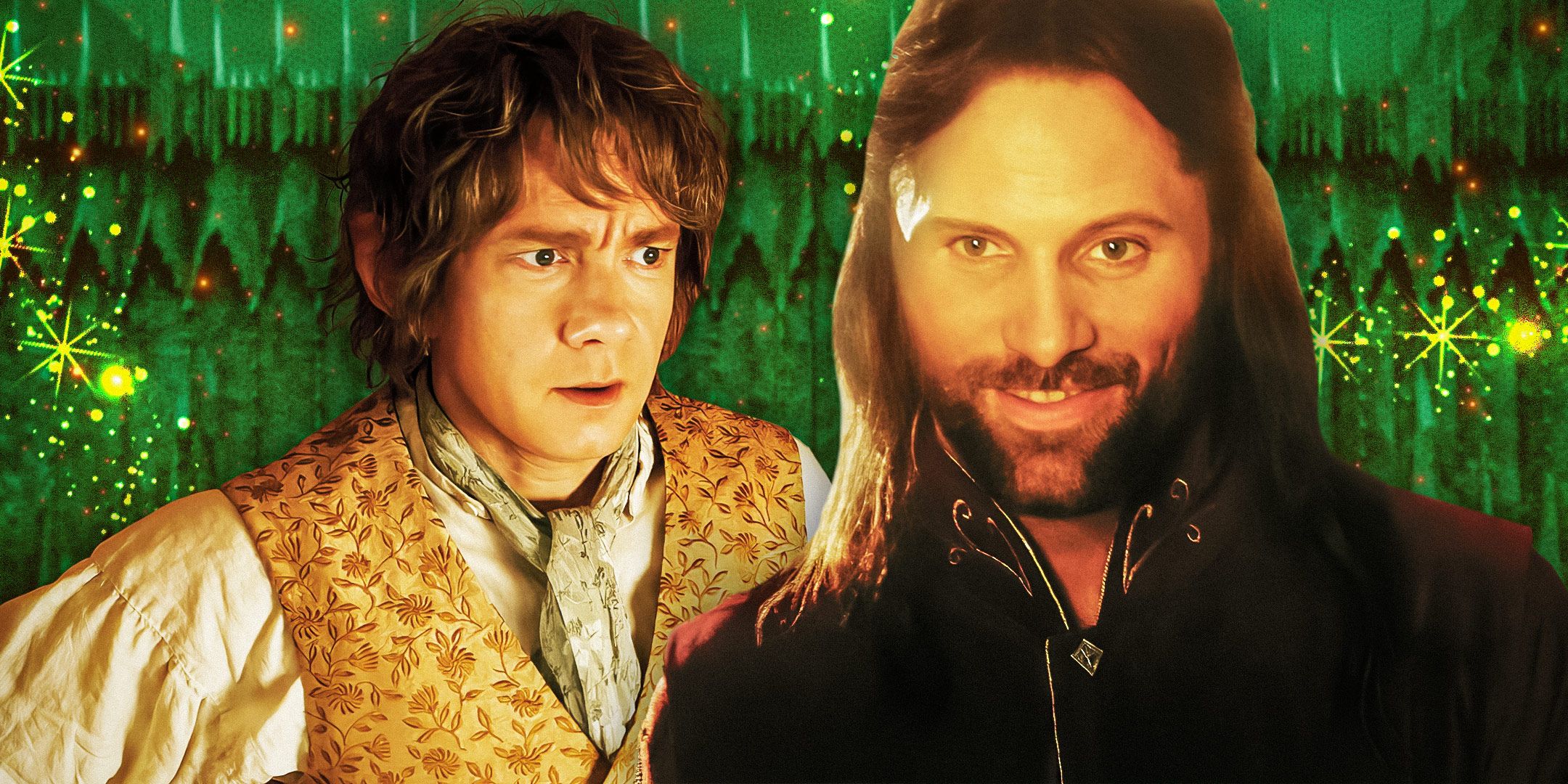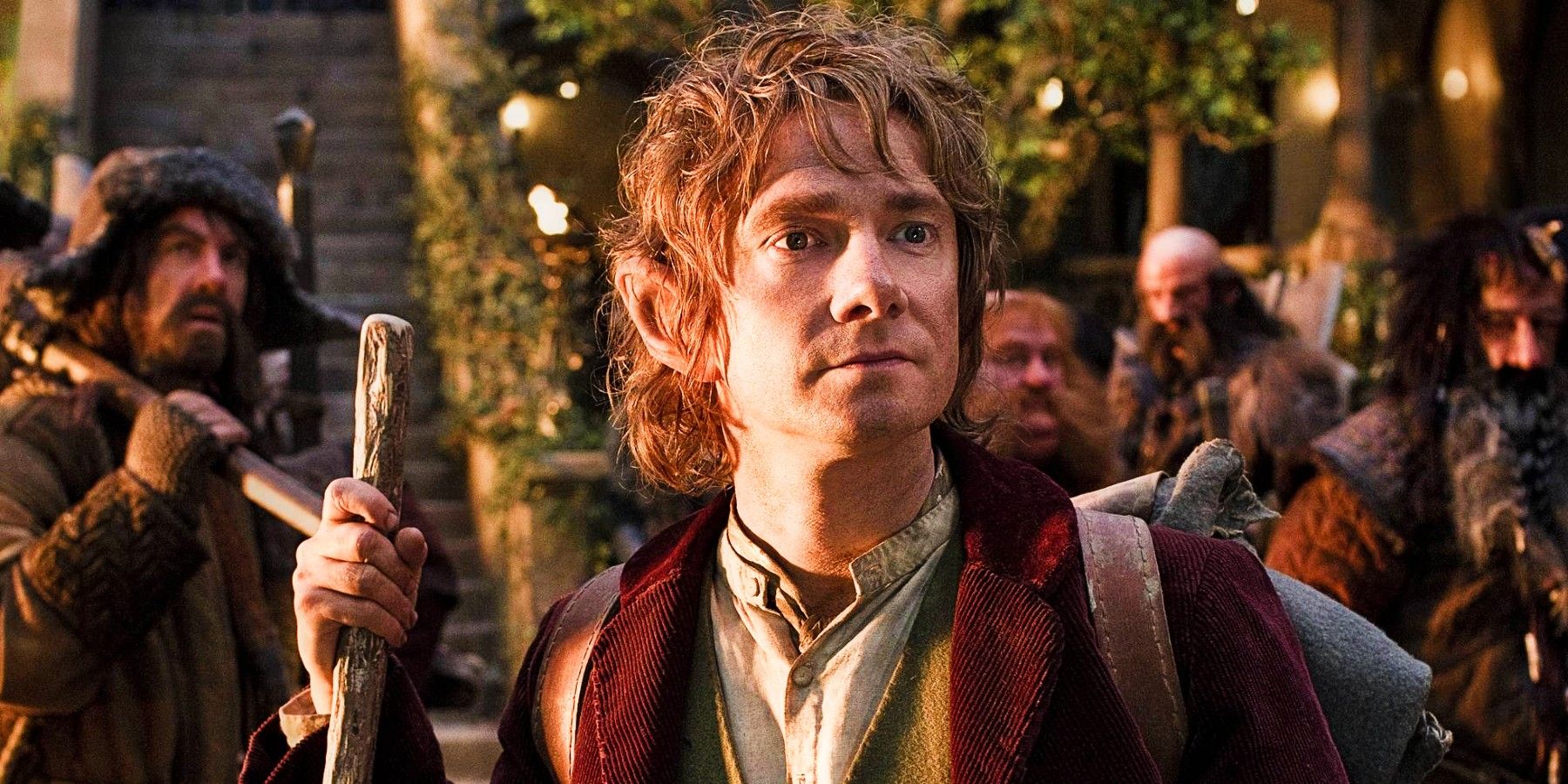
The Hobbit film box office ended The Lord of the Rings' Trend of US$ 1 billion, reversing the franchise's performance and highlighting how much went wrong with Peter Jackson's second trilogy. The Lord of the Rings The films are hugely beloved and are still hailed as the standard of fantasy cinema today. Jackson's initial adaptations of JRR Tolkien's books only became more successful as time went on, but the same cannot be said about The Hobbit films - even if they have seen some level of success.
The first Hobbit film, An unexpected journey, premiered in 2012 - almost a decade later The Return of the King first success in cinemas. After nearly 10 years away, fans were eager to return to Middle-earth, and Tolkien's first book seemed like the obvious way to do so. But while adapting The Hobbit It was a smart way to expand Warner Bros. Lord of the Rings franchise, the approach taken by the films was questionable. The Hobbit the trilogy's box office trajectory proved as muchmarking a disappointing turnaround for the franchise.
The Lord of the Rings films got bigger and bigger and reached $1 billion
The return of the king marked a huge milestone in the franchise
Perhaps it's no surprise, given how Jackson Lord of the Rings the trilogy got better and better, but the first three films followed an upward trajectory until they surpassed the US$1 billion mark. The Fellowship of the Ring was the lowest-grossing installment of Jackson's film SDA universe until The War of the Rohirrim, which has just hit theaters. The Fellowship of the Ring grossed US$894 million worldwide (via The Numbers), an impressive feat. And the numbers only improved from there, with The Two Towers raising US$921 million and The Return of the King earning $1.1 billion.
Surpassing the $1 billion mark is a huge achievement for any franchise, and the excitement surrounding Jackson Hobbit adaptation offered hope that The Lord of the Rings this trend would continue. Jackson's return as director, along with the main cast members reprising their roles, seemed to attract audiences. There was also a lot of potential in bringing Tolkien's 1937 novel to life on screen. Unfortunately, although the first installment of The Hobbit trilogy earned almost as much as Return of the King, its sequels failed to reach above the $1 billion mark.
The Hobbit films' box office peaked with the first
An Unexpected Journey was the only installment to earn $1 billion
Although the adaptation perspective The Hobbit was exciting, Jackson's second trilogy didn't progress in the same direction as the first. In truth, The Hobbit films peaked with the first installment, An unexpected journey. The 2012 film grossed just over $1 billion, although its performance still fell short The Return of the Kingis about $100 million. Still, the fact that the franchise's $1 billion trend continued initially seemed promising. Unfortunately, the second and third Hobbit the films didn't reach the same heights.
|
The film The Lord of the Rings |
Release year |
Worldwide box office performance (rounded) |
|---|---|---|
|
The Lord of the Rings: The Fellowship of the Ring |
2001 |
US$894 million |
|
The Lord of the Rings: The Two Towers |
2002 |
US$921 million |
|
The Lord of the Rings: The Return of the King |
2003 |
US$1.1 billion |
|
The Hobbit: An Unexpected Journey |
2012 |
US$ 1 billion |
|
The Hobbit: The Desolation of Smaug |
2013 |
US$959 million |
|
The Hobbit: The Battle of the Five Armies |
2014 |
US$940 million |
The Desolation of Smaug and The Battle of the Five Armies were still successful in their own rights, but they began a downward trajectory towards the Lord of the Rings franchise. The Desolation of Smaug grossed US$959 million at the worldwide box office and The Battle of the Five Armies took another step down, raising US$940 million. This decline was clearly a turning point for the franchise, and This could be attributed to some issues with Jackson Hobbit trilogy.
Why The Hobbit Sequels Made Less Money Than The First, Unlike LOTR
Several poor creative decisions contributed to his declining performance
While The Hobbit films were still successful at the box office, there is no denying that they saw a decline that The Lord of the Rings the trilogy just didn't work. Some factors contributed to this, the first being the decision to turn The HobbitThe adaptation in three parts. The length of the book did not justify this type of expansion, leading to frustration among Tolkien fans. Dragging The Hobbit films released affected the pace and required original content that did not necessarily fit into the source material.
The films' production ran into trouble after Guillermo del Toro left the project and Jackson came on board.
That's just part of what went wrong The Hobbit trilogy, however. The films' production ran into trouble after Guillermo del Toro left the project and Jackson came on board. Jackson admitted to feeling rushed and this dampened the creative side of things, especially when it came to planning. Additionally, The Hobbit the films have been criticized for excessive and sometimes inappropriate use of CGI, an issue that Lord of the Rings movies didn't have it. All of these things resulted in less influential films overall, causing them to underperform their predecessors.
Source: The Numbers
